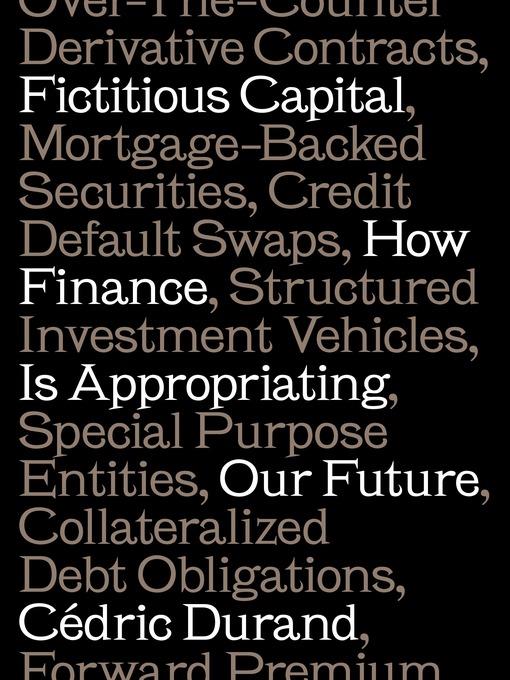
Fictitious Capital
How Finance Is Appropriating Our Future
کتاب های مرتبط
- اطلاعات
- نقد و بررسی
- دیدگاه کاربران
نقد و بررسی

March 27, 2017
Radical scholar Durand’s first book investigates the terrifying, amoral nature of finance and its untenable role in contemporary neoliberal society. His primary argument involves a critique of “fictitious capital.” He defines this as “claims over wealth that is yet to be produced... a growing pre-emption of future production.” Fictitious capital emerges, at least in the current economic context, out of a long process of financialization, the “reorientation of capital accumulation away from productive and commercial activities toward ones concerning finance.” No longer is the economy based around labor or manufacturing products, he writes, but rather “debts, shares, and a diverse array of financial products.” Durand decries how government intervention allows fictitious capital to “assume proportions incompatible with the real production potential of economies,” which “will inexorably lead to crisis.” This is all to say that the state allows for this system’s cyclical failures, shielding financial service providers while harming everyone else. Durand’s analysis is heady, requiring frequent digressions to explain his terms, but this is to be expected. Durand is a scholar through and through; where one might expect polemic, there is instead cogent analysis. This even-handedness, far from reassuring, makes his argument all the more powerful and his diagnosis all the more dire.

























دیدگاه کاربران